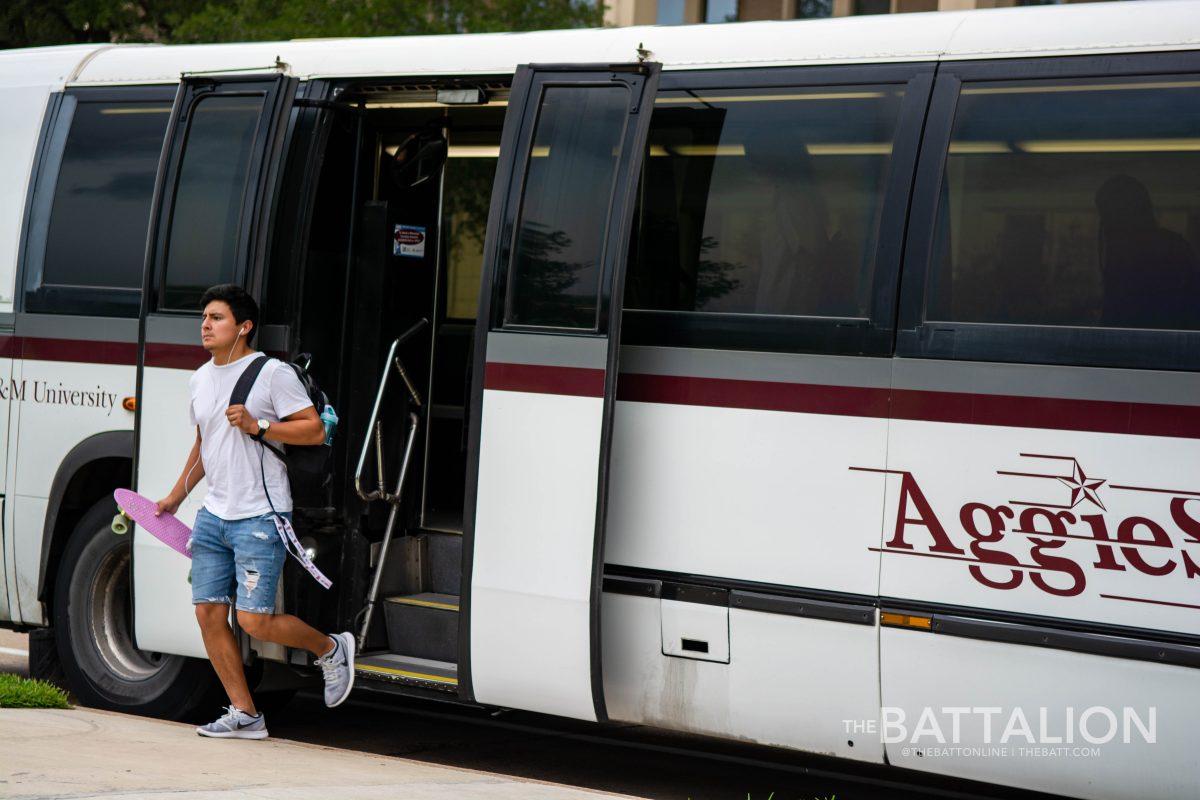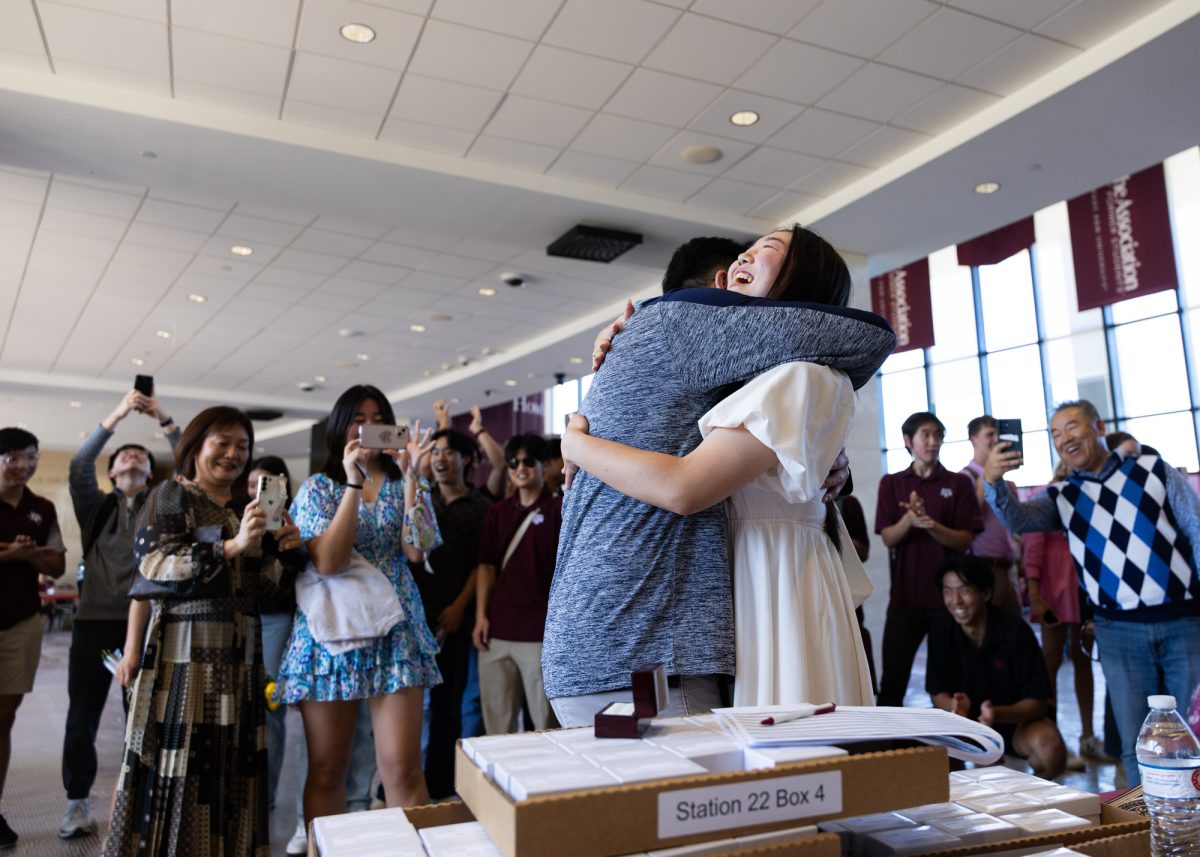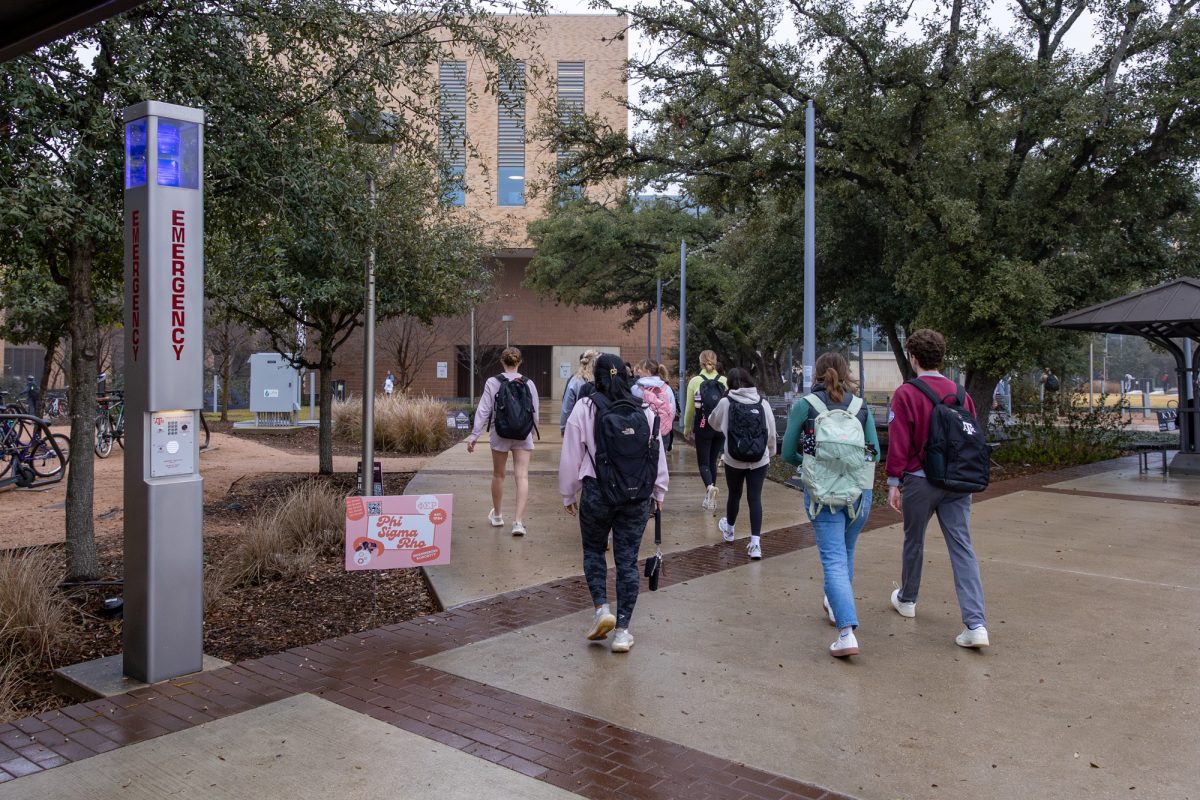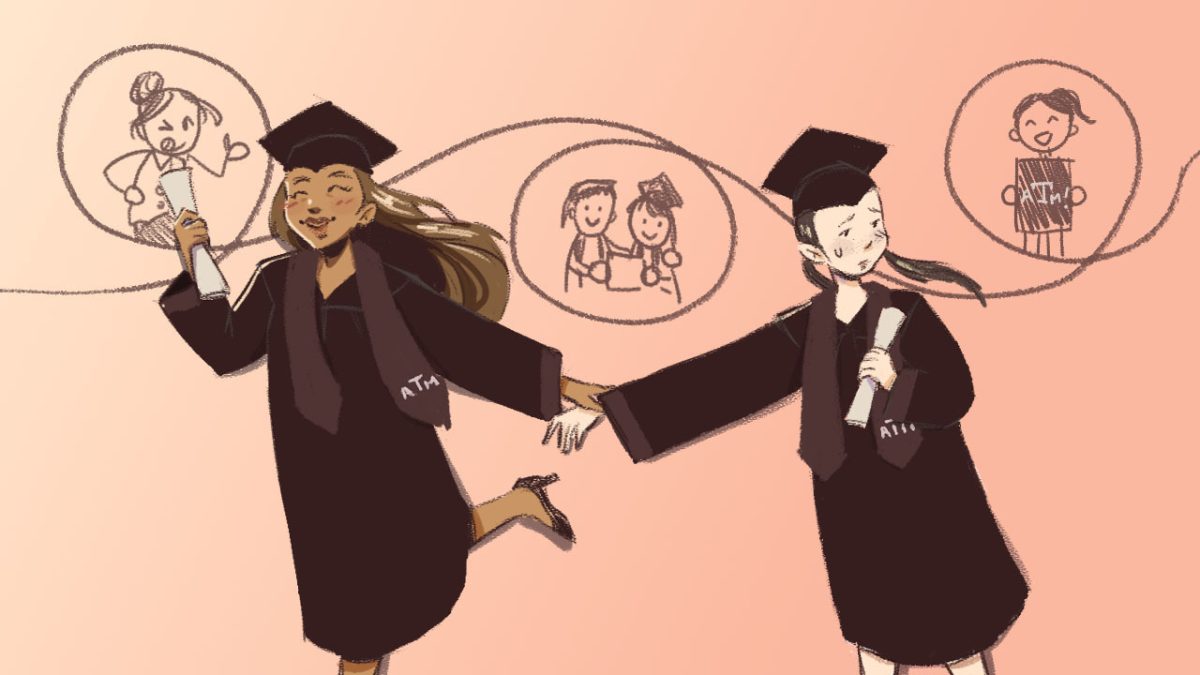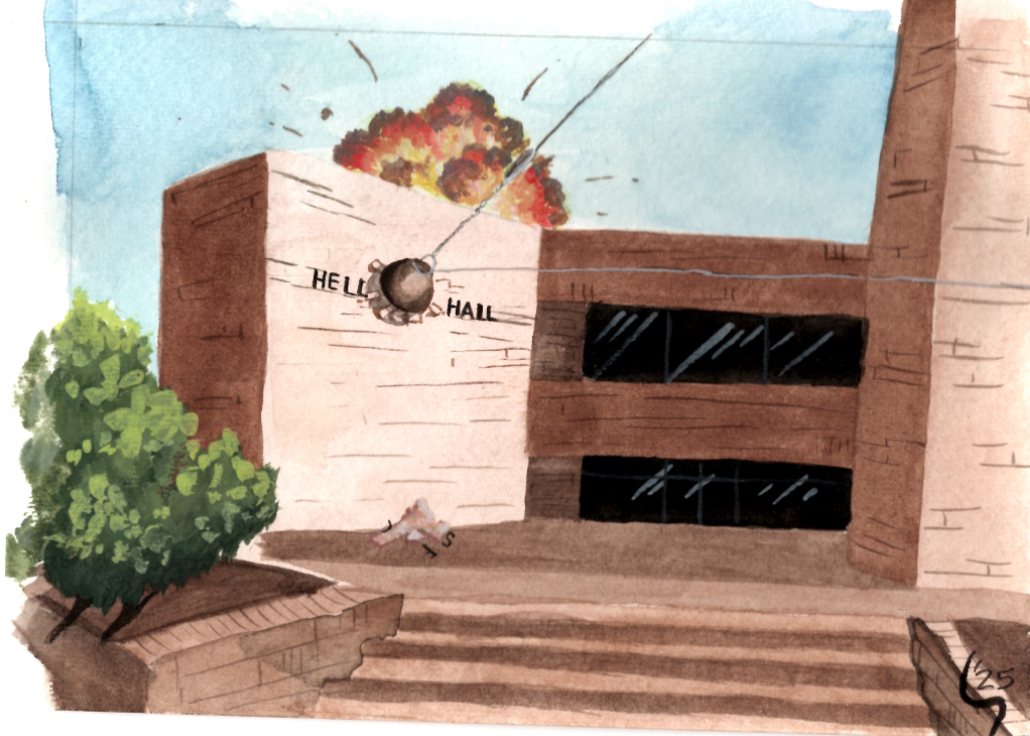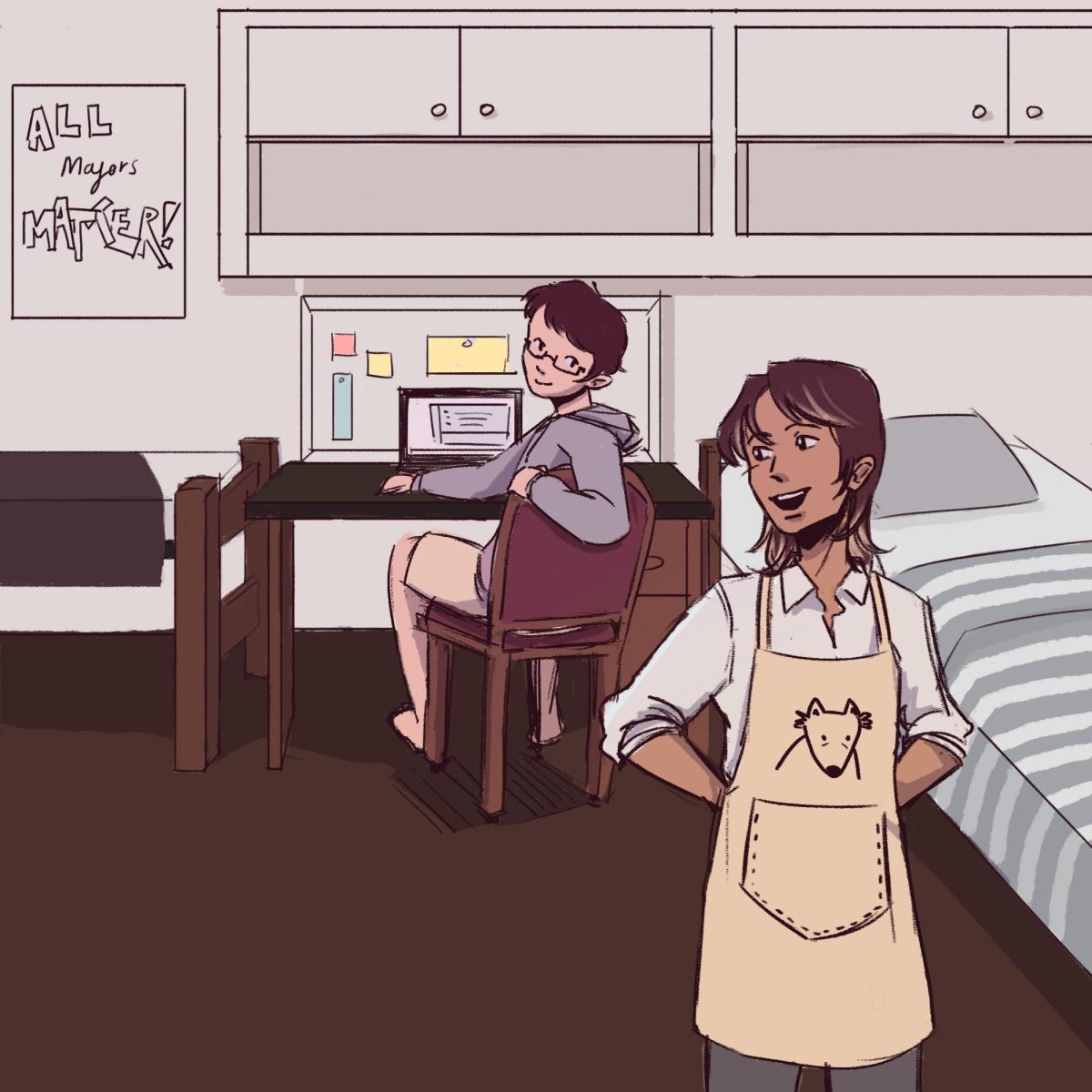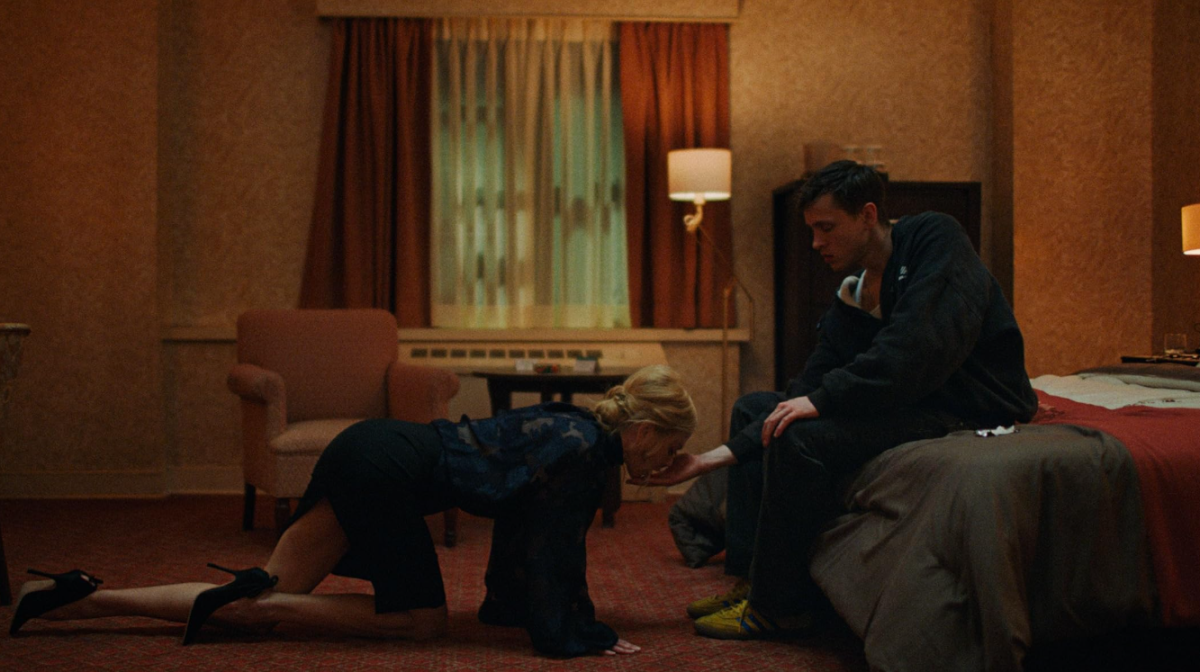I was on an Aggie Spirit bus when the bus driver asked if someone would exit to help spot her as she reversed. After some uncomfortable silence, the bus driver and I made eye contact, and it became clear I’d have to step out. I couldn’t help but ask myself why no guy volunteered to take my place.
While my trivial experience doesn’t warrant a controversial discussion on masculinity, let’s have one anyway.
Now, I’m not oblivious to the fact that the male-female dynamic has changed, and most men now see women as capable of anything, including guiding a bus driver. What bothered me was the attitude of merely standing by, an attitude that didn’t seem to reflect the spirit of the 12th Man.
Historically, Texas A&M has been the epitome of traditional masculinity. So, being a school that upholds service, leadership and respect, where did chivalry go? It’s fleeing along with the idea of there ever being ‘positive’ masculinity.
The bus incident showed a side of men that represses aiding women for fear of being misperceived as sexist. If not that, their inaction could’ve just been awkwardness — still a symptom of a lack of confidence in their identity.
I can’t imagine my life without traditional masculine figures. My grandpa was a quiet, humble man who worked in factories and as a truck driver for many years before he was diagnosed with diabetes and had to have his legs amputated.
Although physically limited, he never complained about his predicament, feeling pain or providing for his family. He did it with pride without putting on an obnoxiously hard facade; tenacity and service showed he was truly masculine.
Growing up in times that valued traditional roles, he wouldn’t think twice about whether it was awkward or oppressive to help someone. I’m sure he never considered his identity toxic, but as one with a responsibility to serve as a selfless leader to all. His view of male roles was a moral responsibility to protect and serve those he loved: values ingrained in A&M.
Some modern feminists say traditional gender roles are restrictive. While I agree that not all people will express themselves traditionally, the ones who do shouldn’t be shamed or convinced that living traditionally is internally misogynistic. Gender norms are being purged by radical ideology that seeks to empower all expressions of what it means to be feminine, but won’t defend men who display traditional masculinity.
We shouldn’t label “toxic” behavior as a characteristic of one sex, it’s simply immoral behavior. Even then, some things that have been assigned toxic masculinity have been unreasonable. In recent years, going to the gym and yelling in the military have been criticized as being unacceptable, patriarchal expressions. It’s as though everything A&M appreciates is being scolded by modern feminist ideology.
I’m not just making this up. Searching the term masculinity on scholarly sites gets me hundreds of results pertaining to toxic masculinity, yet maybe five results associating positive traits with masculinity. Even according to the American Psychological Association, “traditional masculinity — marked by stoicism, competitiveness, dominance and aggression — is, on the whole, harmful.”
So far, A&M has yet to fall into this cesspool entirely. We still honor men’s righteous accomplishments; not because they were men, but because they went above their call. During WWII, more than 20,000 cadets served, and we still commission a large number of cadets into the military. We can’t afford to start telling these men their ambitions to lead and harness aggression are toxic.
These men play a valuable role in people’s lives, just like my grandpa in mine. A&M is still an oasis that houses a male population who prides themselves in service when overall military service has declined significantly in the last decades. By telling men their masculinity is wrong, we undermine male morale, especially on our campus of men with historically traditional leadership roles and ambitions after graduation.
As new ideas surface about whether men should continue opening doors for women or paying on the first date, we should reject ideology that stops men in their tracks and makes them question service.
The Corps of Cadets succeeds because of men wanting to challenge themselves, male camaraderie and the oh-so-toxic desire for men to feel physically strong. Telling men these characteristics are rooted in misogyny deters them from using these virtues to benefit society.
Chivalry shouldn’t become an Old Army artifact left behind for us to reminisce about. It’s some of what keeps our campus traditions alive.
Proposing under the Century Tree and even Corps escorts are just some examples of chivalry being reflected in our campus culture. Even the silly urinal in the Memorial Student Center women’s bathroom lightheartedly symbolizes serving women. By denying the existence of positive masculinity, we deny men pride in these qualities at all.
This denial could cause male Aggies’ wandering glances as they weigh the options of whether it would be courteous or oppressive to tell me they’d take my place stepping out of the bus.
By accepting chivalry and traditional masculinity, I don’t mean that men owe an answer to every woman’s beckoning call, or to say that women are in desperate need of being serviced.
When men feel socially valued, they give back to society, or in this case, a girl sitting on the bus.
Valerie Muñoz is a journalism junior and opinion writer for The Battalion.
Opinion: A&M can’t afford to lose its masculinity
March 28, 2023
Photo by FILE
Aggie Spirit buses will run on a modified schedule and carry a maximum of 30 passengers per bus.
0
Donate to The Battalion
$810
$3500
Contributed
Our Goal
Your donation will support the student journalists of Texas A&M University - College Station. Your contribution will allow us to purchase equipment and cover our annual website hosting costs, in addition to paying freelance staffers for their work, travel costs for coverage and more!
More to Discover




